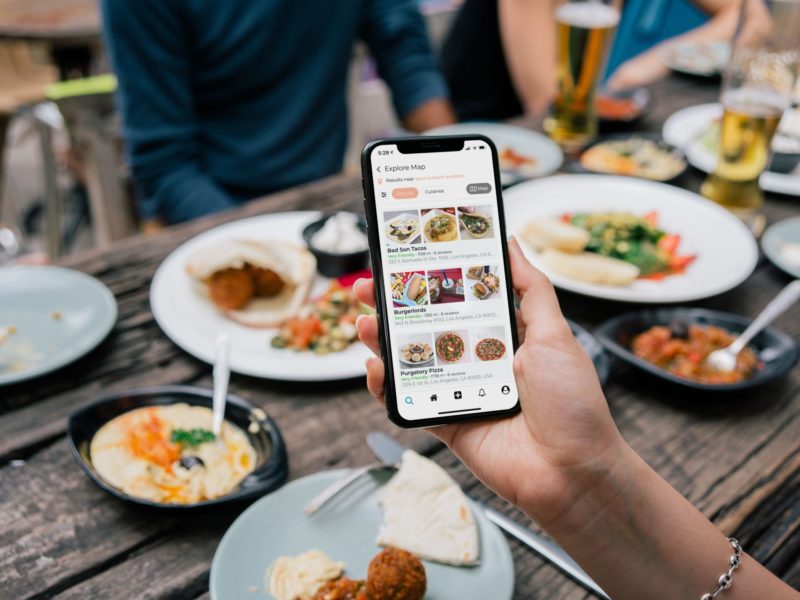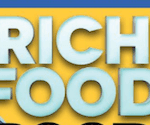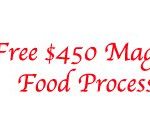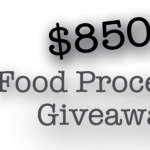Food tracking apps have grown increasingly popular in recent years, with millions of people having them installed on their phones right around the world. But are they as beneficial as they appear to be on the surface?
Chances are, if you own a smartphone, you’ve got a food tracking app installed. Whether you simply downloaded it to learn more about your eating habits, or to help you track how many calories you consume on a daily basis, you will be well aware how helpful they can be.
But are food tracking apps really all they’re cracked up to be? Sure, they can act as handy tools if you’re trying to keep an eye on your health, but there may be a range of other issues you haven’t yet considered, such as the potential for a data breach claim to arise.
In this post, we’ll be taking a closer look at both the pros and the cons of food tracking apps to help you decide whether they are right for you. Be sure to read on to find out more…
Con: The Risk of Data Breaches
As with any digital application that collects your personal data, there is a risk that food tracking apps can experience a data breach. This may be caused by human error by an employee, or a cyber-attack from an unauthorised party; the only thing that matters is that your personal data can be exposed.
While this may not seem like a big deal if you haven’t provided a food tracking with any financial information, like your bank details, cyber criminals and fraudsters can still do a lot with very minimal data.
For example, it may be possible for a fraudster to use your email address or phone number to target you with a phishing attack that is designed to extract further sensitive information. This might encourage you to provide them with those bank account details you thought were safe!
This isn’t just a hypothetical concern, either. In 2018, the popular food tracking app, MyFitnessPal, suffered a significant data breach which affected over 150 million users, with usernames, email addressed, and scrambled passwords all being exposed.
Pro: A Way of Checking Physical Health Concerns
It’s very common for your diet to become suddenly unsuitable. You may find that, despite eating the same foods that you always have, you feel ill or you’re experiencing issues such as bloating or indigestion.
Doctors will usually recommend that, when this happens, you take a food log to spot any patterns. As you might expect, you can use a food tracking app to do this, which means you can record more detailed information, allowing you to recognise patterns much easier.
So, by recording information in a food tracking app, you may be able to recognise that you have an issue such as lactose or gluten intolerance.
Con: Food Tracking Apps Prioritise Numbers Over Health
When we look at food tracking apps, it can be very easy for users to focus solely on the goal of hitting target numbers rather than actually listening to the body and what it needs.
No two days are ever the same – on some days we naturally have a bigger appetite than others – which means tracking the numbers associated with the food we eat is not always going to be the healthiest approach.
Tracking the numbers associated with the food we eat can quickly become something that we obsess over, too. This means we can start to think of food as nothing more than a way of building up numbers, as opposed to a natural way of fuelling our bodies.
Pro: It Provides Greater Awareness of Nutrients in Food
Do you know exactly what goes into some of your favourite meals? Chances are, unless you’re a food expert, you probably don’t – which is where a food tracking app can come in very handy.
The vast majority of food tracking apps allow you to track more than just the calories in food. They can also give you an indication of the protein, carbohydrates, fat, sugar, fibre and salt content in the ingredients that make up our food.
This means you can see exactly how balanced your meals are each day and over the course of a full week. You can also use the information provided in a food tracking app to target certain nutrients if you have any health concerns. For example, if you’re experiencing high cholesterol, you’ll be able to easily take stock of your fibre intake and increase it where possible.
Con: They Aren’t Sustainable Long Term
Ask yourself this: can you really see yourself tracking every single meal you eat for the rest of your life? Food tracking apps are not necessary a sustainable long-term solution to healthy eating and living.
Constant use of food tracking apps can promote a ‘diet mentality’. This is where your food choices are decided for you, without taking factors like hunger, cravings, and personal food preferences into account.
Pro: Inexpensive Compared to Other Diet Plans
There are plenty of other alternatives to food tracking apps, many of which were around long before smartphones worked their way into the mainstream. However, said alternatives, like weight loss programmes, are often very expensive, especially in comparison to food tracking apps.
Often times, food tracking apps are free to use, which means, if you don’t find any success with them, you won’t have wasted any money!
What Are Your Thoughts on Food Tracking Apps?
In this post, we’ve covered some pros and cons to the use of food tracking apps. Ultimately, many of these points will depend on how an individual uses a food tracking app and for how long, but it’s important to be aware of what effects they can have.
Do you already use a food tracking app on a daily basis? Or have you previously used one and decided to stop? If you have any thoughts of your own, feel free to leave them in the comments below.
Please be advised that this article is for general informational purposes only, and should not be used as a substitute for advice from a trained medical professional. Be sure to consult a medical professional or healthcare provider if you’re seeking medical advice, diagnoses, or treatment. We are not liable for risks or issues associated with using or acting upon the information on this site.
Photo credits:
Photo 1 – abilion via Unsplash
Photo 2 – Andrej Lisakov via Unsplash
Photo 3 – freestocks via Unsplash
Interested in eating more healthy for life?
Listen to our friends over at Wellness Force Radio to learn about the “5 Must Have Nutrition Fundamentals”










 The Risks of Taking Diet Pills to Supplement Your Health
The Risks of Taking Diet Pills to Supplement Your Health